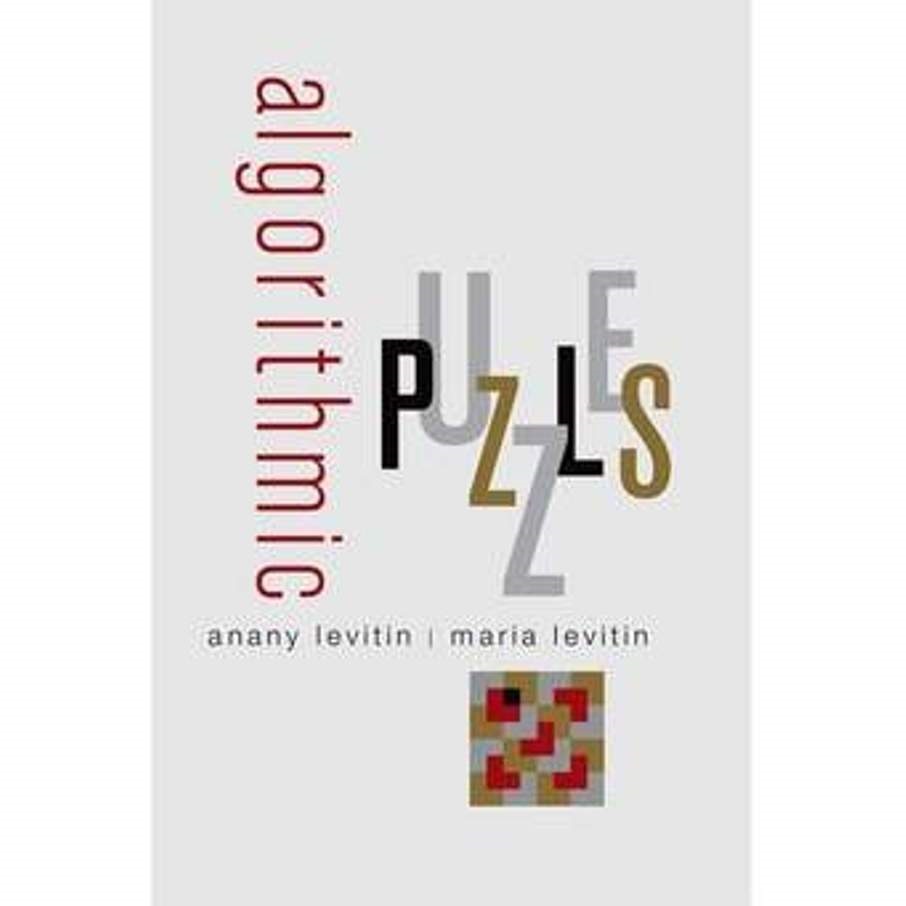FUNDAMENTALS OF ALGORITHM DESIGN AND ANALYSIS
Course Attendees
Still no participant
Course Reviews
Still no reviews
Course Name : FUNDAMENTALS OF ALGORITHM DESIGN AND ANALYSIS
Code(Credit) : CUTM1899(3-2-1)
Course Objectives
- The objective of this course is to study paradigms and approaches used to analyze and design algorithms and to appreciate the impact of algorithm design in practice. It also ensures that students understand how the worst-case time complexity of an algorithm is defined
- How asymptotic notation is used to provide a rough classification of algorithms,
- how a number of algorithms for fundamental problems in computer science and engineering work and compare with one another, and how there are still some problems for which it is unknown whether there exist
efficient algorithms, and how to design efficient algorithms.
Learning Outcomes
- Introduction, algorithm, pseudo code for expressing algorithms, performance analysis, space
complexity, time complexity, asymptotic notation, big oh notation, omega notation, theta notation,
and little oh notation, probabilistic analysis, amortized analysis. - Disjoint sets, disjoint set operations, union and find algorithms, spanning trees, connected components, biconnected components Divide and conquer: general method, applications, binary search, quick sort, merge sort, matrix multiplication.Greedy method: general method, applications, job sequencing with deadlines, 0/1 knapsack
problem, minimum cost spanning trees, single source shortest path problem.Dynamic programming: general method, applications, matrix chain multiplication, optimal binary
search trees, 0/1 knapsack problem, all pairs shortest path problem, travelling sales person
problem, reliability design.Backtracking: general method, applications, n-queen problem, sum of subsets problem, graph
coloring, Hamiltonian cycles.Branch and Bound: general method, applications, travelling sales person problem, 0/1 knapsack
problem. LC branch and bound solution, FIFO branch and bound solution.NP-hard and NP-complete problems: basic concepts, non deterministic algorithms, NP-hard and
NP-complete classes.
Course Syllabus
Module I: Introduction to analysis and design of algorithm (4 Hrs)
Introduction to analysis and design of algorithm, Growth of functions, Asymptotic notations,
Recurrences, Solution of recurrences by substitution, Recurrence tree and the master method.
Assignment 1: Examples on Recurrences (Substitution Method, Recursion Tree Method, Master's Method)
Module II: Divide and conquer algorithms (4 Hrs)
Worst case analysis of merge sort, quick sort and heap sort
algorithms, Priority queue, Data structure for disjoint sets (Disjoint set operations, linked list
representation, disjoint set forests)
Assignment 2: Example of Merge sort, Quick sort, Heap sort Techniques
Practice:
- Implement Insertion Sort (The program should report the number of comparisons)
- . Implement Merge Sort(The program should report the number of comparisons)
- Implement Heap Sort(The program should report the number of comparisons)
- Implement Randomized Quick sort (The program should report the number of comparisons
- Implement Radix Sort
Module III: Dynamic programming approach (4 Hrs)
Matrix chain multiplication, longest common subsequence.
Assignment 3: Example on Matrix chain Multiplication. Finding LCS among two strings
Practice :
6. Write a program to determine the LCS of two given sequences
Module IV: Greedy method (5 Hrs)
Fractional knapsack problem Greedy verses dynamic programming, Huffman codes. Concept of backtracking, branch & bound design techniques.
Assignment 4: Example on 0/1 Knapsack problem. Huffman coding.
Module V: Single source shortest paths (5 Hrs)
Graph algorithms: Minimal spanning tree (Kruskal's and
Prim’s algorithms), Single source shortest paths (Bellman-Ford and Dijkstra’s algorithm), Floyd’s algorithm.
Practice:
7. Implement Breadth-First Search in a graph
8. Implement Depth-First Search in a graph.
9. Write a program to determine the minimum spanning tree of a graph
Assignment 5: Examples on Kruskal's and Prim's Algorithm. Bellman-Ford and Dijkstra's Algorithm
Module VI: Flow Network (4 Hrs)
Ford-Fulkerson method, Fast Fourier Transform, Rabin-Karp string matching algorithm.
Assignment 6: 4 point & 8 point DIF and DIT FFT
Assignment 7: Example on Robin-Karp String matching Algorithm.
Module VII: NP-Completeness (4 Hrs)
NP Completeness, Polynomial time solvability, Verification and Reducibility, NP complete problems (without
proof), Approximation algorithm for the traveling salesman problem
Assignment 8: Example on Travelling Salesman Problem
I am text block. Click edit button to change this text. Lorem ipsum dolor sit amet, consectetur adipiscing elit. Ut elit tellus, luctus nec ullamcorper mattis, pulvinar dapibus leo.
Session Plan
Session 1
Growth of functions
https://slideplayer.com/slide/4862946/
https://www.slideserve.com/bonnie/the-growth-of-functions
Session 2
Asymptotic notations
https://youtu.be/44Lezs_GNc0
http://www.authorstream.com/Presentation/minhas1989-1414747-ppt-on-daa/
Session 3
Recurrences
https://youtu.be/dq949luGrU0[/
Session 4
Solution of recurrences by substitution, Recurrence tree method
https://www.geeksforgeeks.org/analysis-algorithm-set-4-master-method-solving-recurrences/
Session 5
the Master's method
https://www.slideshare.net/ajacin/master-method
https://youtu.be/mJDNA6Wo0BE[/
https://www.slideshare.net/vidushipathak52/merge-sort-14333866
Session 7
quick sort algorithm
https://www.slideshare.net/priyankanaidu6/quick-sort-2017249
https://www.slideshare.net/mohammedarif89/heap-sort-18479976
https://www.slideshare.net/priyankanaidu6/quick-sort-2017249
Session 9
Priority queue, Data structure for disjoint sets (Disjoint set operations
https://www.powershow.com/view1/d4215-ZDc1Z/Priority_Queues_Heaps_powerpoint_ppt_presentation?varnishcache=1
Session 10
Data structure for disjoint sets (Disjoint set operations, linked list representation)
https://www.powershow.com/view4/6914eb-NjlmO/Disjoint_Set_Data_Structures_powerpoint_ppt_presentation
Session 11
disjoint set forests
https://www.powershow.com/view4/6914eb-NjlmO/Disjoint_Set_Data_Structures_powerpoint_ppt_presentation
Session 12
Matrix chain multiplication
https://www.slideshare.net/RespaPeter/matrix-chain-multiplication
Session 13
longest common subsequence
https://www.powershow.com/view1/270f73-ZDc1Z/Longest_Common_Subsequence_LCS_powerpoint_ppt_presentation?varnishcache=1
Session 14
Greedy verses dynamic programming
https://www.javatpoint.com/dynamic-programming-vs-greedy-method
Session 15
Concept of backtracking, branch & bound design techniques
https://pediaa.com/what-is-the-difference-between-backtracking-and-branch-and-bound/
https://youtu.be/3RBNPc0_Q6g
Session 16
Graph algorithms: Minimal spanning tree (Kruskal's algorithms)
https://www.youtube.com/watch?v=8ctZ98WkGuE
Session 17
Graph algorithms: Minimal spanning tree (Prim’s algorithms)
https://www.tutorialspoint.com/data_structures_algorithms/prims_spanning_tree_algorithm.htm
https://www.youtube.com/watch?v=hAejNMRN78c
Session 18
Huffman codes
https://www.gatevidyalay.com/tag/huffman-coding-example-ppt/
https://youtu.be/co4_ahEDCho
Session 20
Fractional knapsac problem
https://www.powershow.com/viewht/15fd3e-ZDc1Z/Knapsack_Problem_powerpoint_ppt_presentation
https://youtu.be/yV1d-b_NeK8
Session 21
Bellman-Ford algorithm
https://www.slideshare.net/tanu696/shortest-pathsbf
https://youtu.be/FtN3BYH2Zes
Session 23
Dijkstra’s algorithm
https://www.slideshare.net/ami_01/dijkstras-algorithm-7716656
https://youtu.be/DAj7mtiAiQM
Session 24
Floyd’s algorithm.
https://www.slideshare.net/SaidurRahmanKohinoor/floyd-warshall-algorithm-56194284
https://youtu.be/oNI0rf2P9gE
Session 25
Ford-Fulkerson method
https://www.cs.rit.edu/~lr/courses/alg/student/1/Ford-Fulkerson%20Method.pdf
https://youtu.be/a08SHTk45vc
Session 26
Fast Fourier Transform
https://www.slideshare.net/op205/fast-fourier-transform-presentation
https://youtu.be/BXghmsH-mKY
Session 27
Rabin-Karp string matching algorithm
https://youtu.be/3mWbnyQl1U0
Session 28
Polynomial time solvability, Verification and Reducibility
https://youtu.be/YlEqelSE_ic
Session 29
NP complete problems (without proof)
https://youtu.be/DumOqL85Ryc
Session 30
Approximation algorithm for the traveling salesman problem.
https://bochang.me/blog/posts/tsp/
https://youtu.be/u5rqrQqGk3E
Our Main Teachers
Assistant Professor, Dept.IT, School of Applied Sciences, Centurion University of Technology and Management, Bolangir, Odisha, India. She has over 5 years of teaching experiences. She has educational qualification of Mtech in CSE from BPUT.


